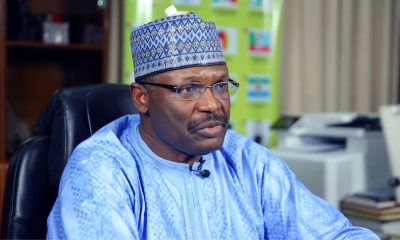Business
FG, UN Target $5bn Annually For Poverty Alleviation
The Federal Government and the United Nations, and other development partners, are to raise $5billion annually for Nigeria’s Humanitarian and Poverty Alleviation Trust Fund.
Nigeria’s Minister of Humanitarian Affairs and Poverty Alleviation, Betta Edu, who disclosed this, midweek, during a humanitarian coordination meeting at the United Nations House, Abuja, while engaging ambassadors, UN agencies, NGOs, etc, on their commitment to humanitarian crises in Nigeria, said the stakeholders are also committed to a coordinated approach and durable solutions for humanitarian response in Nigeria.
A statement from the Ministry said at the meeting, the honourable Minister engaged ambassadors, UN agencies, NGOs, etc, on their commitment to humanitarian crises in Nigeria.
“The meeting, which was at the instance of the minister, brought all the humanitarian responders in Nigeria under one roof, where they all committed to a durable, smart, and coordinated approach to humanitarian response.
“Part of the resolutions of the meeting was the commitment to raise $5bn annually for the Humanitarian Affairs and Poverty Alleviation Trust Fund in Nigeria, by the Federal Government, other countries, private sector, donor agencies, and the development partners”, the ministry stated in the statement.
Edu conveyed President Bola Tinubu’s appreciation to the United Nations agencies and development partners for their contributions to easing humanitarian challenges in Nigeria.
She, however, stressed that the era of uncoordinated, unaccountable, and silotic approaches to humanitarian response in Nigeria was over.
“President Bola Tinubu does appreciate the effort of the UN agencies and other organisations that are working in the humanitarian space, but we just need to bring this effort in a more coordinated manner so that we can achieve more, especially in the face of dwindling resources.
“There is a need for the government to take the lead and properly coordinate. The days of uncoordinated responses to the humanitarian crisis in Nigeria should be over.
“The days of operating in silos and duplicating efforts that lead to wastage, among other things, should be over. The government must take the lead to coordinate, to ensure that we are first in line with government priorities, and then secondly, we are meeting our targets”, she stated.
She emphasised the Federal Government’s commitment to reduce, prevent, mitigate, and respond adequately to the humanitarian crisis in Nigeria in a more coordinated manner, thereby reducing poverty by 50 per cent.
Speaking, the United Nations Resident and Humanitarian Coordinator for Nigeria, Matthias Schmale, who spoke on behalf of UN agencies, expressed support for the government in its effort to tackle humanitarian challenges.
“We’ve heard very clearly from you that humanitarian needs span the rest of the country. We are here as United Nations agencies to support in ensuring proper coordination, develop review and implementation response plan, mobilise resources for country response, as well as align to the Federal Government priorities”, he said.
Business
FG Flaggs Of Renewed Hope Employment Initiative
Business
Kachikwu Makes Case For Increased NCI Fund To US$1bn … Timeline For Developing Oil Blocks
Business
FG Embarks On Sanitizing Mining Industry
-
Politics3 days ago
2027: Bayelsa APC Adopts Tinubu As Sole Candidate … As Lokpobiri, Lyon Shun Meeting
-
Sports3 days ago
GOtv Boxing Night 34 holds Dec. in Lagos
-
Sports3 days ago
WCQ: NFF Denies Post Match Statement
-

 Politics3 days ago
Politics3 days agoAlleged Smear Campaign Against Yakubu, CSOs Demand Apology From Uzodimma
-
Politics3 days ago
2027: Jega Condemns Premature Campaigns, Blames Elected Officials
-
Politics3 days ago
Why INEC Can’t Punish Politicians For Early Campaigns – Yakubu
-
Politics3 days ago
Stopping Natasha’s Resumption Threatens Nigeria’s Democracy – ADC
-
Sports3 days ago
Gov. Decries Delta’s Poor Performance At 2025 NYG

